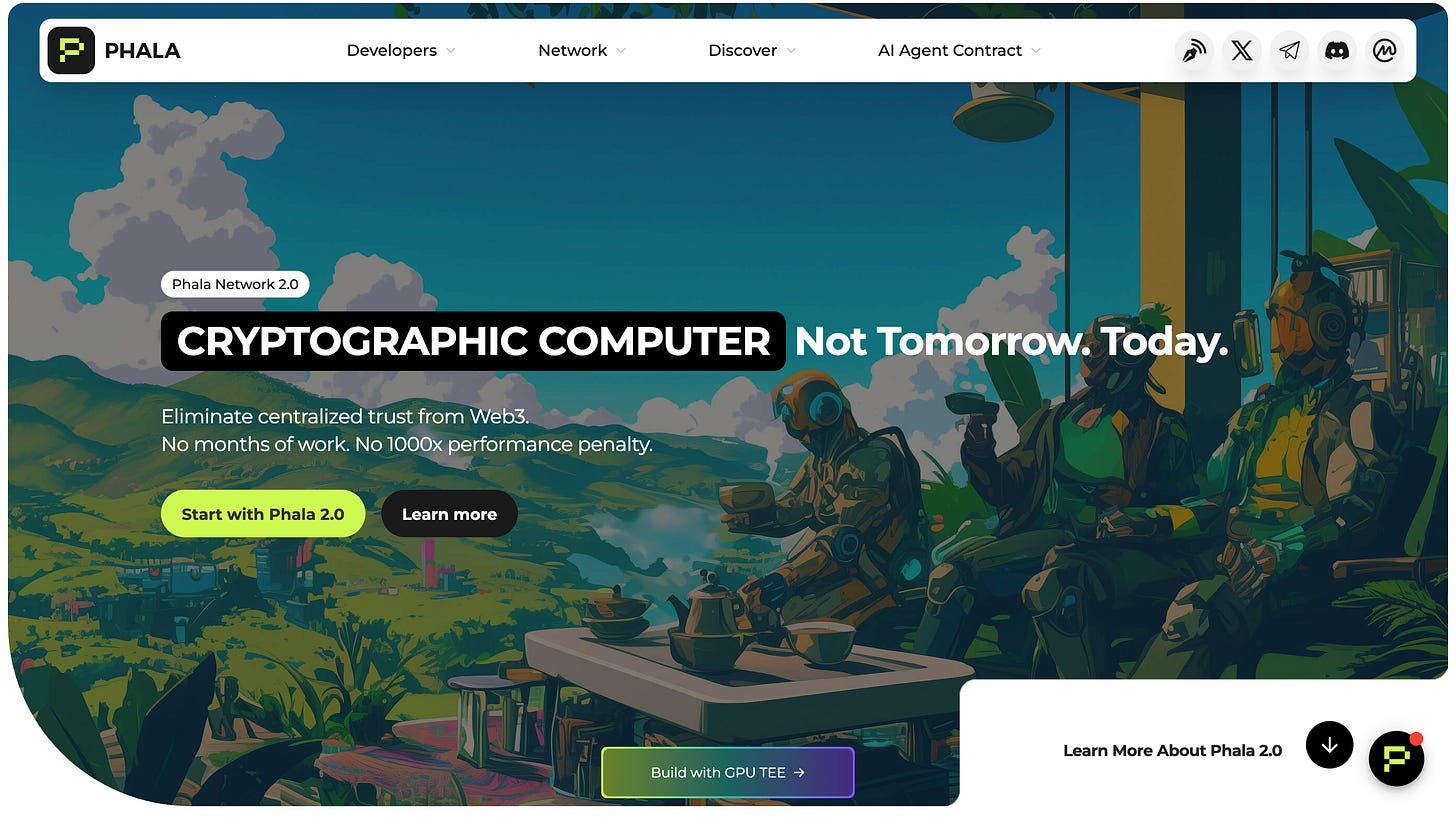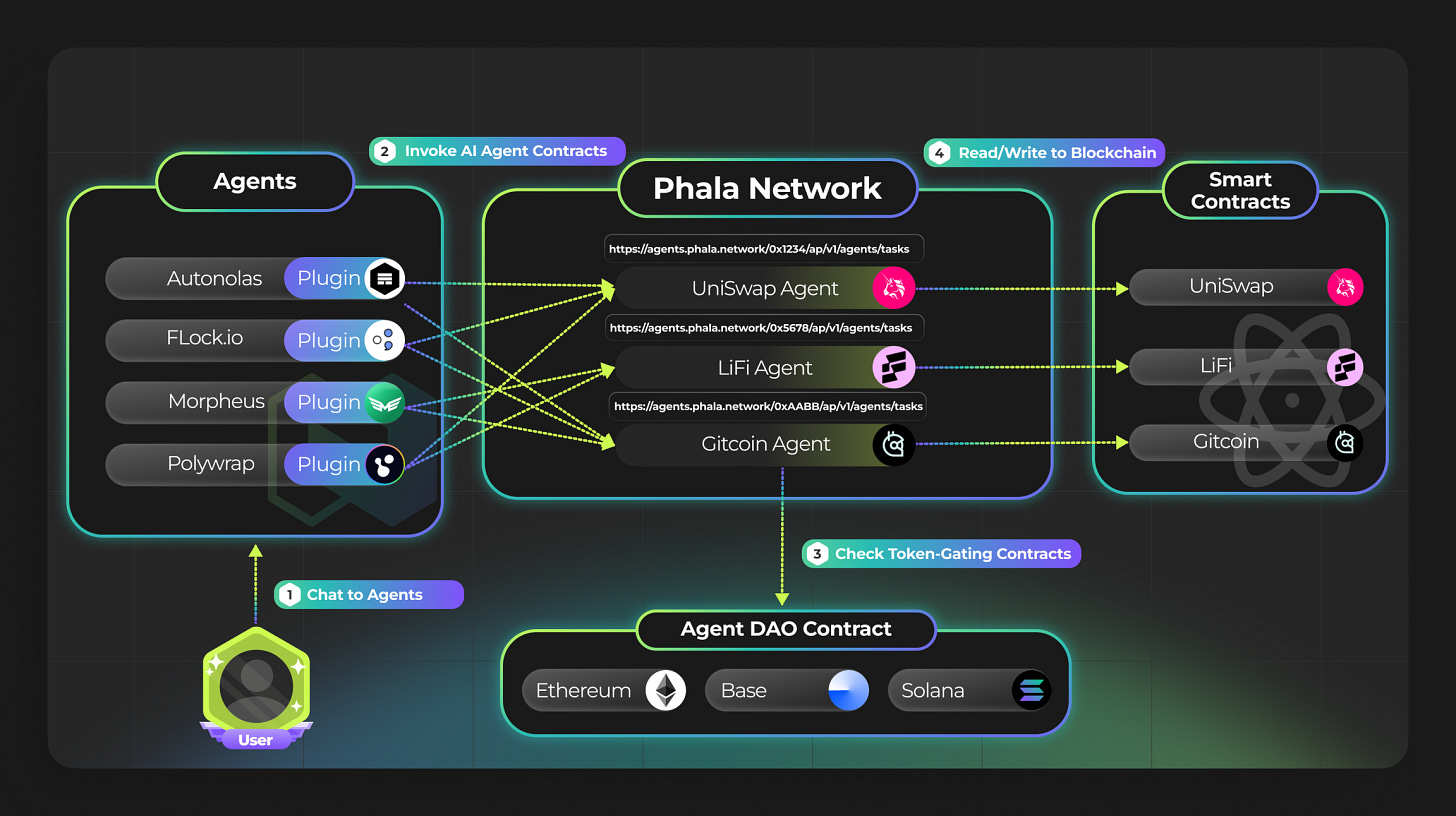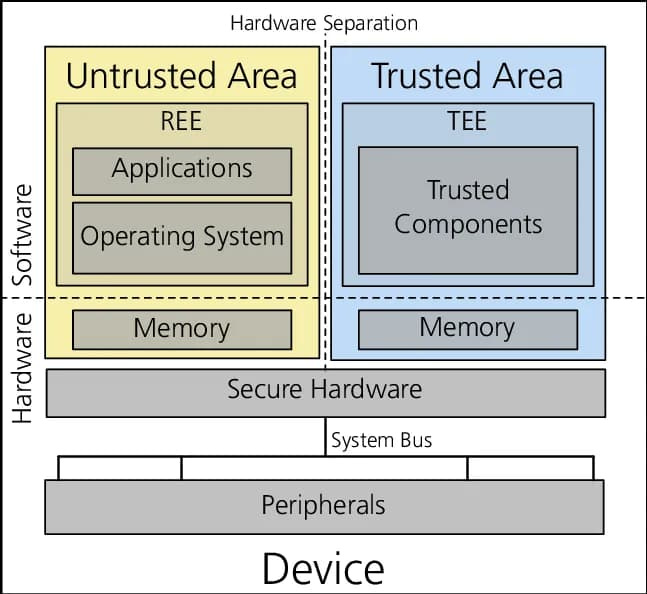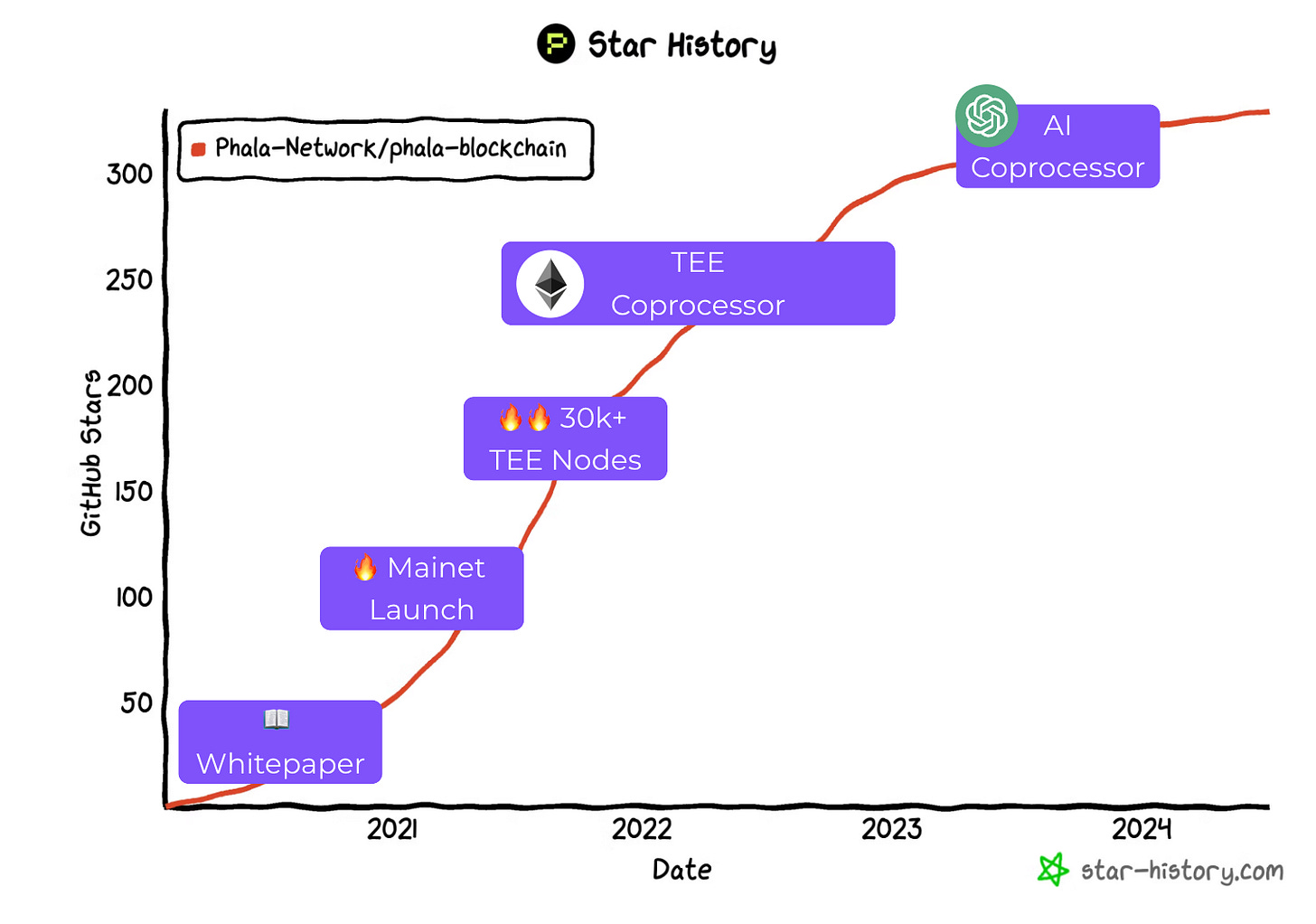【Phala Network】Providing TEE for AI Agents / Providing Highly Confidential and Secure Environment / Building a Unique L2 with Op-Succinct that Combines the Best of ZK and OP / @PhalaNetwork
We provide TEE required in the age of AI agents.
Good morning.
I'm Mitsui, a web3 researcher.
Today I researched the “Phala Network”.
🟡What is the Phala Network?
🚩Migrated from Polkadot to Ethereum and built its own L2
💧Token economics
💬Will it become a pickaxe for the age of AI agents?
🟡What is the Phala Network?
The Phala Network is a decentralized cloud that provides secure and scalable computing for web3.
The main aim of this project is to solve the problem of “privacy protection” that smart contracts on blockchains face. Specifically, it provides a system that allows you to take advantage of the benefits of blockchains (distributivity, transparency, tamper-resistance, etc.) while protecting confidential information by executing code and data in a secure area (TEE) within the CPU and making the processing content invisible from the outside.
The project aims to provide a system that allows “the secure acquisition of necessary calculation results without sharing data”. For example, it will be possible to train and infer AI models without passing the original data to the other party.
However, technical explanations are extremely difficult, so this article will not go into too much technical detail, but will instead explain the outline of the system and why it is attracting attention now.
The Phala Network has four core components.
Distributed Computing Cloud Network: Builds scalable blockchain technology and a trusted execution environment (TEE) to ensure the verifiability and security of computing execution.
TEE (SGX) Framework: Builds on the core Intel TEE architecture to ensure secure and verifiable code execution within a hardware-protected area of isolation on the computer's processor.
AI Agent Contracts: AI computing programs that allow EVM smart contracts to extend their functionality off-chain.
Blockchain/Phala nodes: These are certified and secure worker nodes that retrieve and execute transactions off-chain. These nodes use the blockchain to organize a decentralized network and incentivize workers.
It's a bit difficult, isn't it? The keyword that has attracted the most attention is “TEE”. It's fine to remember that the Phala Network is a project that provides this TEE environment. This TEE is very compatible with AI agents and has attracted a lot of attention recently.
So, what is TEE?
TEE (Trusted Execution Environment) is a system that executes programs while strictly restricting external access, utilizing the special hardware area of the CPU. The most well-known example is Intel SGX, and various other vendors also provide similar technologies, such as AMD SEV and ARM TrustZone.
The code and data that run within the TEE are protected so that they cannot be viewed or tampered with by the host OS or users with administrator privileges. Furthermore, by using a function called remote attestation, it is possible to prove to a third party that the program running within the TEE is running the correct version.
Conventional blockchains, because they are decentralized, have the property that “all transaction data is basically public”. This has been a benefit in areas such as DeFi and NFTs, but it is a major barrier to handling confidential information. The Phala Network has achieved unique privacy protection by combining on-chain transparency and off-chain confidentiality. The method of processing calculations and data confidentially in a TEE and only writing the results on-chain is rapidly attracting attention in highly confidential fields such as medical data and AI training data.
In particular, when using AI, large amounts of data are required, but there is a risk of privacy leakage when companies and individuals provide data. With TEE, data providers can have calculations performed only in a secure environment without passing on the raw data to the other party. Furthermore, remote certification can be used to confirm whether the processing is being performed in a truly secure environment, so we can expect more reliable AI model development and inference services.
Phala Network has been working on TEE for five years since its establishment.
Initially developed as Phat Contracts, it has since evolved into AI Agent Contracts, enhancing the functionality of EVM smart contracts. Furthermore, by incorporating ZKP and supporting Fully Homomorphic Encryption (FHE) coprocessors, Phala ensures robust security and verifiability for any project.








